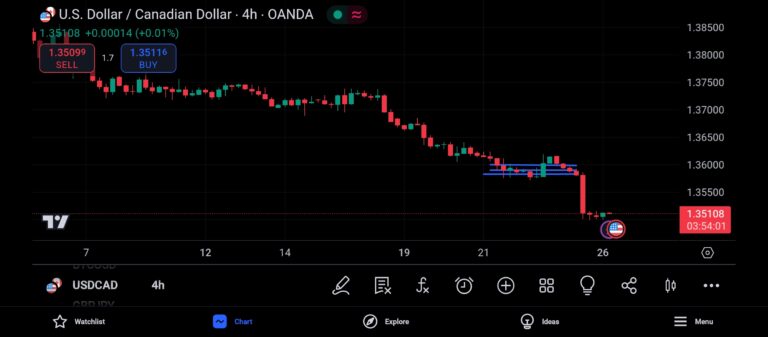Is Strategy the Ultimate Secret to Successful Trading?
The first thing that people are usually told when they begin a trading journey is to look for a good strategy. Though strategy definitely plays a vital role when it comes to performing trades, the bottom line is that it’s far from the ultimate secret that holds the key to successful trading. As a matter of fact, risk management, emotional control, and some other important issues frequently act as deciders of whether a trader can turn from losses onto the path of regular gain-making.
Precisely in this article, we are going to explain why strategy alone is just not enough and why the real path towards success in trading lies in mastering certain psychological and managerial factors.
Table of Contents
Why Strategy Alone Isn’t Enough
While a good strategy may provide direction in the market, it is not an individual ingredient for success. The reason why many traders, though with a fine strategy, also fail, is because they have totally disregarded the psychological and risk management aspects of trading.
To truly be successful, traders must:
- Merge their strategy together with strict risk management rules.
- Master their emotions in such a way that rash decisions are not made.
- Be constantly adjusting to market conditions, but never allow greed, fear, and FOMO to take over.
The Real Pillars of Profitable Trading
Any experienced trader knows very well that it is not only about strategy. A supposedly good trading system is never complete without the human factor: fear, greed, FOMO (fear of missing out), and correct management of money, time, and risk. Let’s touch on the key factors:
1. Risk Management Over Strategy
Perhaps the most salient factor in trading is risk management. It doesn’t matter how many trades you make but rather how you manage those losses when the market moves against your trades. Without good risk management, even the best strategies will always lead to significant losses over time.
Key tips for effective risk management:
- Always use stop-loss orders to limit potential losses.
- Never risk more than 1-2% of your trading capital on a single trade.
- Keep a well-diversified portfolio to reduce exposure to market fluctuations.

2. Emotional Control: The Silent Profit Killer
Even the most disciplined of traders can have emotions derail a trade. The two most common emotions that tend to cause failure in trading are fear and greed. The result of fear is causing a trader to leave a trade too early, which often leaves profits on the table. Greed does the opposite; it convinces traders to stay in trades longer than they should, setting them up for losses.
Not to fall into emotional pitfalls, the following actions could be performed:
- Adhere to the trading plan in place.
- Define and clearly establish entry and exit points.
- Revenge trading, or in other words, the urge to get back after a loss.
3. Fear: The Paralyzing Effect
Fear has the effect of preventing traders from taking vital trades or acting irrationally in highly volatile markets. Controlling fear is an important aspect in making sober decisions.
Ways to overcome fear:
- Backtest your trading strategies to build confidence.
- Lowball your trades, then go up as you feel your way out.
- You are not to pay attention to the short-term wavering but rather long-term goals.
4. Greed: The Overconfidence Trap
Most of the time, traders get into excessive risks in their greed for larger profits. This could result in over-leveraging and over-trading until losses are incurred. Control of greed can enable you to stick to your plan without chasing unrealistic profits.
Avoiding greed:
- Set a very realistic goal for profits.
- Accept that not all trades will go in your favor.
- Know at what time to take profits and step out.
5. FOMO: Fear of Missing Out
The FOMO can drive traders to get into a market without analysis, just out of fear of not getting in on what could be a lucrative trade. FOMO too often causes traders to jump in late, then exposes them to the risk of a market reversal.
To avoid FOMO:
- Do not make your trading decisions based on emotions.
- Stick to the plan and do not get tempted by the market.
- Remind yourself, the market will always give you fresh opportunities.
6. Money Management: The Lifeblood of Trading
In other words, good money management can keep you in the game long enough for your trading strategy to pay off. Bad money management, on the other hand, will get you wiped out eventually, even if several good trades come your way in succession.
Principles of money management:
- Use proper position sizing.
- You should implement a risk/reward ratio of 1:2 or better.
- It is not advisable to use high leverage on your account, except for the experienced trader.
7. Time Management: The Often Overlooked Factor
Most traders never even think that time management is one part of the trade. Time must be taken for research, analysis, and even much-needed learning but also balancing the time in personal life.
Some tips relating to time management are:
- Spend a little time each day to review market trends.
- Automate your tasks now and optimize your trading efficiency, such as setting an alert or stop-loss.
- Take breaks to avoid burnout.
Emphasizing these five key ingredients, which are fear, greed, FOMO, money management, and risk management, it would put you at an advantageous lead in this mostly volatile world of trading.






